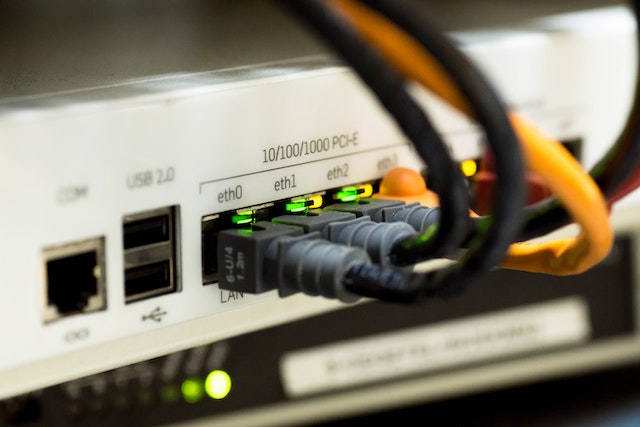Welcome back to Technied. In this article, we are going to discuss the pros and cons of Wi-Fi and Ethernet. 
What is Wi-Fi?
WiFi is a wireless networking technology that uses radio waves to connect devices such as laptops, phones, and tablets to the internet. Wi-Fi offers a faster connection than Ethernet, but it can be less stable in crowded areas. There are other options available too, including satellite internet installation, which is a much better option for those living in a rural area, or on the road. However, we are just going to be comparing Wi-Fi and Ethernet today.
Pros of Wi-Fi
- Fast: wifi speed test tools can be used to check how fast it is when connecting to a network, making it perfect for use in small spaces or near busy areas.
- Secure: Because Wi-Fi connections are not encrypted, your data is vulnerable to interception by other people or devices on the same network. In some cases, this may also include malicious actors such as hackers.
- No cables necessary: One significant benefit of using Wi-Fi is that there are usually no cables to hook up devices. This makes setup and uses much easier, especially if you have a larger home or office with multiple rooms.
Cons of Wi-Fi
- Wi-Fi has a shorter range than Ethernet.
- Wi-Fi can be more susceptible to interference from other devices and networks.
- Wi-Fi is less reliable than Ethernet in severe weather conditions or high-traffic areas.
- A higher cost can be associated with installing and using Wi-Fi technology.
- Wi-Fi can be slower than Ethernet in some cases, which could impact the performance of connected devices.
- Some routers may not support all Wi-Fi connections, limiting the potential for compatibility with specific devices or applications.
- There is no guarantee that a specific device will connect to a given network using Wi-Fi technology, adding a layer of uncertainty to networking setups.
You Might Like: Top 5 Broadband Internet Service Providers
What is Ethernet?
Ethernet is a type of network cable that connects devices on a network. The cables are usually color-coded and have different connectors. If you are looking for a good quality ethernet cable, we suggest you to use lindy cat8 ethernet cable. Ethernet is generally faster than Wi-Fi, but it can be less secure.
Pros of Ethernet
When it comes to networking, Ethernet is typically considered the gold standard. Here are some of its pros:
- High Speed: Ethernet can reach speeds of up to 100 Mbps, which is several times faster than Wi-Fi.
- Reliability: Ethernet is more reliable than Wi-Fi because there is a dedicated cable between the host and network interface card (NIC), making it immune to interference.
- Parity: Parity errors occur when data is double sent over a network and can result in dropped packets or even slow down the entire network. Ethernet boasts error-free data transfers using IEEE 802.3x Flow Control that guarantees consistent throughput.
- Security: With Ethernet, you can ensure secure communications by isolating each device on the network with a unique IP address and password.
Cons of Ethernet
Ethernet is often considered the standard for networking in businesses and schools. It’s reliable and easy to use, but it has some cons that you should be aware of.
- Ethernet can be slow when transferring large files or streaming videos. A Wi-Fi network may be faster if you need to connect multiple devices simultaneously because it uses less bandwidth.
- Another disadvantage of Ethernet is that it can be vulnerable to hacking. If your network is connected to the internet, cybercriminals may be able to access your data or invade your computer.
- Ethernet is a wired network. It can be challenging to move around if you need to change locations. You’ll need to rewire your entire office or school system to switch to a wireless network.
Which One Should You Choose
Choosing one type of wireless networking over the other has many pros and cons. Wi-Fi is great for smaller spaces, as it doesn’t require as much range or strength to connect to. However, Wi-Fi is less reliable than Ethernet in connecting devices. Ethernet is better for large spaces where many devices need to be connected, but it can be more expensive than Wi-Fi. As long as you’re using the best internet provider for rural areas or cities depending on where you live, the option between Wi-Fi and Ethernet remains the same.
Conclusion
Wi-Fi and Ethernet have their advantages and disadvantages, which you should be aware of before making a decision. If you’re starting with networking, it’s best to start with Wi-Fi because it’s more widespread and easier to set up. However, if you’re looking for an efficient network that can handle large quantities of data, then Ethernet is the better option. Remember that both technologies have security risks that you should be aware of. So whichever you choose, research first to make the best choice for your needs.